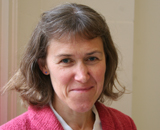 A new hard-hitting film “Mother: caring for 7 billion” should be required viewing for all doctors, policy-makers, and other people. Its message is that the exponentially increasing world population is the major cause of poverty, over-consumption, food poverty, riots, wars, de-forestation, ill-health, major crises, conflict, and climate change. It has vignettes from biologists, medics, and economists. Over-population is cogently argued as the cause of world economic meltdown.
A new hard-hitting film “Mother: caring for 7 billion” should be required viewing for all doctors, policy-makers, and other people. Its message is that the exponentially increasing world population is the major cause of poverty, over-consumption, food poverty, riots, wars, de-forestation, ill-health, major crises, conflict, and climate change. It has vignettes from biologists, medics, and economists. Over-population is cogently argued as the cause of world economic meltdown.
The first half presents harrowing concepts and figures, the second half attempts a way forward. World population has doubled in the last 40 years to 7,000,000,000. Half the world’s population is under 28. 40% of pregnancies in the USA are unintended. 1/3 of maternal deaths in Ethiopia are due to unsafe abortions. 215 million women have no access to contraception. The grain to produce one tank-ful of bio-diesel would feed a person for a year.
The film suggests that the problem is increasing because the topic is seen as too sensitive. It tackles the cultural issues around “the girl effect”: the girls who stay in education have better health, have children later, and have fewer children, who in turn have better health. We need to empower women throughout the world. But the film also showed that cultural change and education needs to include everyone in society.
The film suggests that although the topic is sensitive, we need to tackle it. As healthcare professionals, we are stuck in the paradigm of allowing patient choice and treating an individual patient. The film suggested that we should be using our advocacy role to demand change. Women in other cultures should have the choices that we ourselves have; cultures need to change so that people are valued for what they can contribute, and we should reverse the consumer culture (e.g. by facilitating sustainable transportation).
The film shows an Ethiopian woman who rejected being a child-bride and is trying to change her society. It tackles problems of how to change societal expectations—radio soap operas bringing up taboo subjects had increased spousal communication. It mentions microfinance initiatives, lending money mainly to women for small projects.
One of the film’s speakers suggests we need a different economic paradigm. Countries see growth in Gross Domestic Product (GDP) as a marker of success, yet this encourages consumption of scarce resources and includes burgeoning healthcare industries. Would sustainability be better than growth? Even water is in short supply. The US economy, it argues, requires 150 000 more jobs each month to cope with 1% population growth. One describes economic planning as a giant Ponzi scheme—that we are all paying with money that will never be repaid. One religious speaker comments that extracts of theological texts have often been used to justify a position that has a huge negative effect on the populations they serve. Many women have few choices. Modern long-term reversible contraception moves some decision-making away from the moment of sexual intercourse.
There are suggestions about how to try to reverse the direction: proper funding for family planning, access to choices for all women, access to long-term reversible contraception, support for international development, better education for girls, better sex education for all, change of society to expect different life histories and promotion of a more sustainable lifestyle.
The UK premiere of the film “Mother: caring for 7 billion” was held at the Royal Society of Medicine on 24 April 2012. The film, and information about the topics is available via www.motherthefilm.com
One hour of your life, and one film, could make you see your role in the world differently.
Scarlett McNally has been a consultant orthopaedic surgeon at Eastbourne District General Hospital, since 2002. She is an elected member of Council of Royal College of Surgeons, since 2011. She was previously on BMA Equality & Diversity Committee, and Director of Medical Education for East Sussex Healthcare NHS Trust 2008-11. She is the chair of www.bespokecyclegroup.org getting more people cycling in Eastbourne.
